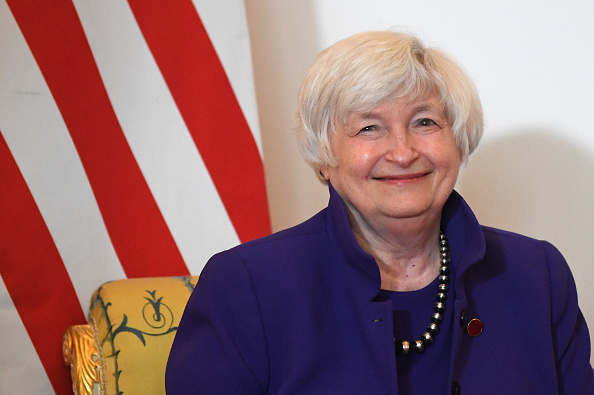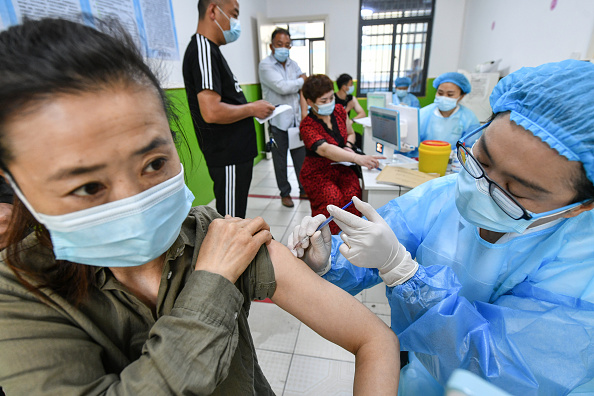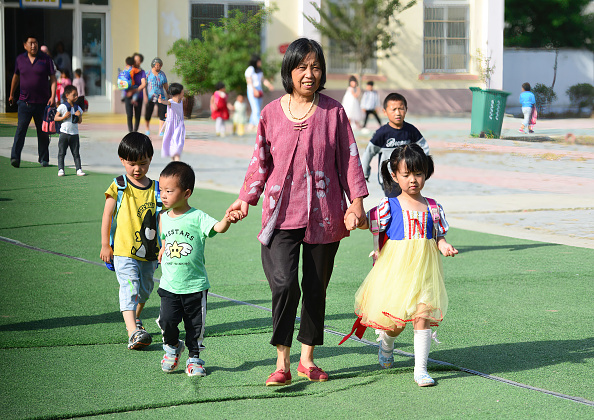
 "Defanging" Diplomacy
"Defanging" DiplomacyU.S. Treasury Secretary Janet Yellen spoke to China's lead trade negotiator Liu He by video call this Tuesday, one week after Liu He spoke with U.S. Trade Representative Katherine Tai. A Treasury statement acknowledged the two discussing "the importance of cooperating on areas that are in U.S. interests, while at the same time frankly tackling issues of concern," but further details on the conversation have been kept under wraps. At the very least, both trade meetings have been less contentious than the Anchorage summit. Read more in The Donkey and the Tiger from Zhou Xiaoming, Former Deputy Representative of China's Permanent Mission to the United Nations.
As the White House attempts to smooth out trade relations, America's position on Chinese tech remains complicated. President Biden banned more Chinese companies from trading with the United States, to ensure the U.S. is "not financing the military industrial complex of the People's Republic of China," according to a White House official. As of August 2nd, U.S. investors will be prohibited from trading with Chinese companies with ties to the country's military or surveillance sector, including Chinese companies such as the China General Nuclear Power Corporation, China Mobile Limited and Costar Group.
In what is viewed by some China watchers as a potential shift in China's diplomatic tone, Xi Jinping called on Party members to uphold China's image as a "credible, lovable, and respectable" country at a Politburo meeting this Monday— a statement that seemed to "defang" China's Wolf Warrior persona. Western response was varied, with some hopeful that China and the U.S. might be able to reach consensus in more areas, while others, such as Senator Rick Scott of Florida, said that "Nothing Xi says can or should be trusted… [China] will never be trusted or 'loved.'"
 The Race to End Covid-19
The Race to End Covid-19China is administering roughly 20 million shots of the Covid-19 vaccine per day, jabbing more people than any other country in the world. Over 40% of the country has had at least one dose, putting it on track to reach herd immunity before the end of the year. Sinovac and Sinopharm remain the country's two largest vaccine suppliers, both having expanded outside China's borders. The World Health Organization approved Sinovac this week for emergency use, following Sinopharm's earlier approval into the WHO.
At the same time, the U.S. announced it would be donating an initial 25 million doses of the Covid vaccine to COVAX, the WHO-led global initiative aimed at providing equitable access to the Covid-19 vaccine. The White House said it plans on donating up to 80 million doses by the end of the month. To date COVAX has only distributed 76 million doses around the world. The U.S.'s donation gives COVAX a much needed boost.
As the global vaccine rollout expands, questions about the early days of the virus are being raised by the U.S. Anthony Fauci urged China to release medical data on early Covid patients in Wuhan so that researchers can further understand the virus. The data concerns medical records of 3 scientists at the Wuhan Institute of Virology from 2019 and 9 miners that entered a bat cave in 2012. Speaking to the Financial Times, Dr Fauci asked, "What do the medical records of those people say? Was there [a] virus in those people? What was it? It is entirely conceivable that the origins of Sars-Cov-2 was in that cave and either started spreading naturally or went through the lab." Chinese Foregin Ministry spokesperson Wang Wenbin declined to say whether China would release the medical records, but called the scenario a "conspiracy theory."
 Baby Boom
Baby BoomChina relaxed its two-child policy this Monday, allowing married households to have up to three children. The move is an effort to increase China's flailing birthrate and aging population. The two-child policy was only implemented in 2015, replacing regulations that prevented most families from having more than one child.
It's uncertain if the added lenience in China's family planning policy will contribute to a rise in birth rates, however, as the cost of living and challenges of long work hours increase. China's birth rate has been sinking for the past four years despite the two-child policy. The change in regulation comes just weeks after China released the findings from its decennary census, which showed an increase in the percentage of Chinese citizens over the age of 60, while the number of young workers continues to remain low.
Prepared by China-US Focus editorial teams in Hong Kong and New York, this weekly newsletter offers you snap shots of latest trends and developments emerging from China every week, while adding a dose of historical perspective.
- 2021-05-28 The End of an Era?
- 2021-05-21 One Step Forward, One Step Back
- 2021-05-14 Drifting Trade Ties
- 2021-05-07 Time to Talk
- 2021-04-30 Academic Pandemic
- 2021-04-23 Carbon Cutting
- 2021-04-16 A Hopeful Climate
- 2021-04-09 Technological Frontiers
- 2021-04-02 Back to Basics
- 2021-03-26 The Biden Era
- 2021-03-19 “A Strong Smell of Gunpowder and Drama”
- 2021-03-12 Bridging the Divide
- 2021-03-05 A Tale of Two AI Superpowers
- 2021-02-26 Changing of the Guard
- 2021-02-20 Collective Approaches
- 2021-02-13 Hopes for a Bullish Year
- 2021-02-05 “The Most Serious Competitor”
- 2021-01-29 Looking Towards Multilateralism
- 2021-01-22 Biden’s China Path
- 2021-01-16 Becoming a "Technological Superpower"
